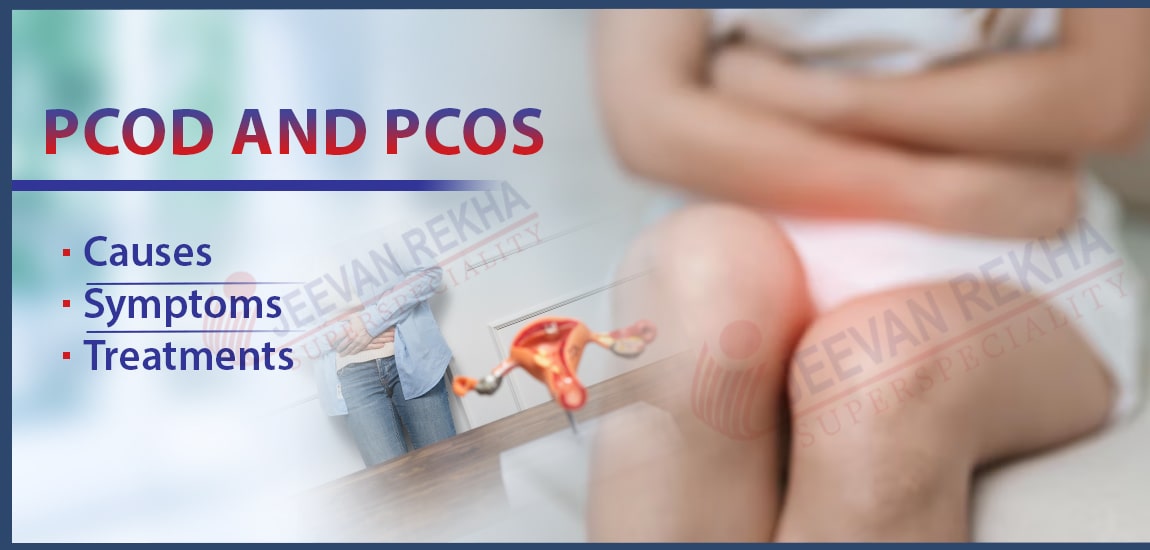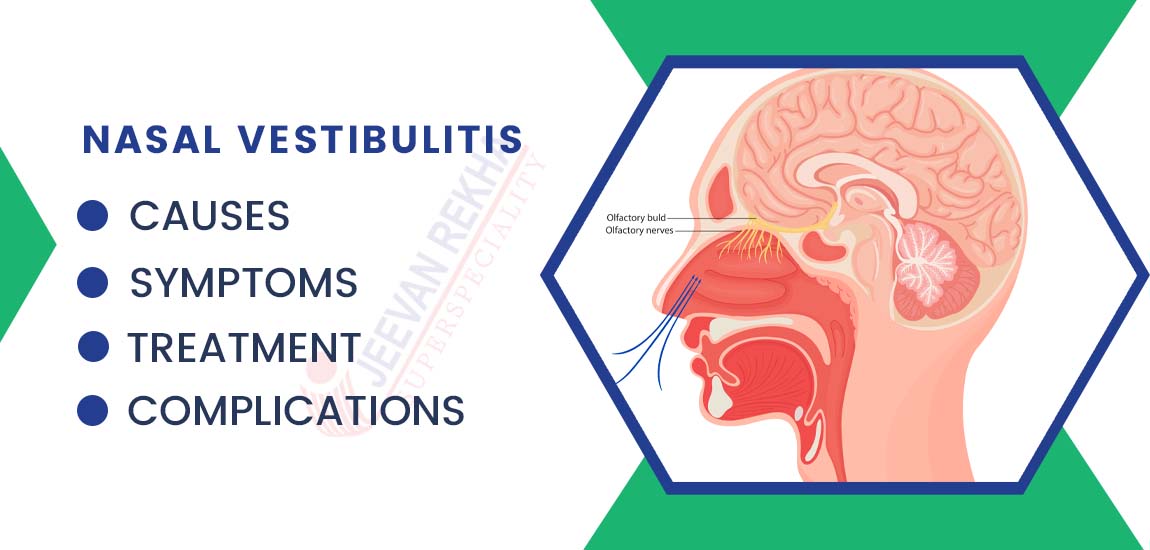
- By Jrsh admin
- In Health and Tips,
- Posted October 10, 2024
PCOD and PCOS: Causes, Symptoms, and Treatments
What are PCOD and PCOS?
PCOD (Polycystic Ovarian Disease) and PCOS (Polycystic Ovary Syndrome) are related but distinct conditions affecting the ovaries. PCOD is characterized by the presence of multiple small cysts on the ovaries and is often associated with irregular menstrual cycles, weight gain, and hormonal imbalances.
While it may not always lead to severe complications, it can impact fertility and overall health. PCOS, on the other hand, is a more comprehensive syndrome that includes a broader range of symptoms, such as insulin resistance, acne, excessive hair growth, and infertility.
It is often linked to long-term health issues like diabetes and heart disease. Both conditions can vary in severity and require individualized management strategies.
What Causes PCOD and PCOS?
The exact causes of PCOD and PCOS are not fully understood, but several factors are believed to contribute to their development:
- Hormonal Imbalances: Both conditions are associated with elevated levels of androgens (male hormones) and imbalances in estrogen and progesterone, leading to irregular ovulation.
- Genetic Factors: A family history of PCOD or PCOS may increase the likelihood of developing these conditions, suggesting a genetic predisposition.
- Insulin Resistance: Many women with PCOS experience insulin resistance, which can result in elevated insulin levels. This may contribute to weight gain and exacerbate hormonal imbalances.
- Inflammation: Chronic low-grade inflammation has been observed in women with PCOS, which may play a role in the condition's development.
- Environmental Factors: Lifestyle factors, such as diet and physical activity levels, can influence the severity of symptoms and may contribute to the onset of PCOD and PCOS.
- Obesity: Excess weight can worsen insulin resistance and hormonal imbalances, making obesity a significant risk factor for both conditions.
- Overall, PCOD and PCOS are multifactorial disorders influenced by a combination of genetic, hormonal, and lifestyle factors.
You can read also:- COPD: Causes, Symptoms, Diagnosis, Treatment & Prevention
Symptoms of PCOD and PCOS
The symptoms of PCOD (Polycystic Ovarian Disease) and PCOS (Polycystic Ovary Syndrome) can vary widely among individuals, but common symptoms include:
Common Symptoms of PCOD:
- Irregular Menstrual Cycles: Infrequent or prolonged periods.
- Weight Gain: Often around the abdomen.
- Acne: Hormonal acne on the face and body.
- Ovarian Cysts: The presence of numerous small cysts on the ovaries.
- Excess Hair Growth: Hirsutism, or unwanted hair growth, particularly on the face, chest, and back.
- Thinning Hair: Hair loss or thinning on the scalp.
- Pelvic Pain: The sudden discomfort or pain in the pelvic area.
Common Symptoms of PCOS:
- Irregular or Absent Periods: Inconsistent menstrual cycles or no periods.
- Infertility: Difficulty in conceiving due to irregular ovulation.
- Weight Issues: Weight gain or difficulty losing weight.
- Acne and Oily Skin: Similar to PCOD, but may be more severe.
- Hirsutism: Significant hair growth in male-pattern areas.
- Skin Changes: Darkening of the skin, especially in areas such as the neck or armpits, known as acanthosis nigricans.
- Mood Changes: Anxiety and depression can be more prevalent.
- Sleep Disorders: Increased risk of sleep apnea.
Difference between PCOD and PCOS
The differences between PCOD (Polycystic Ovarian Disease) and PCOS (Polycystic Ovary Syndrome) primarily relate to their definitions, symptoms, and long-term implications:
Definition:
- PCOD: Specifically denotes the existence of multiple cysts on the ovaries. It is often considered a milder condition and may not always lead to severe hormonal imbalances or metabolic issues.
- PCOS: A more complex syndrome that encompasses a wider range of symptoms and health concerns, including hormonal imbalances, metabolic issues, and reproductive challenges.
Symptoms:
- PCOD: Common symptoms include irregular menstrual cycles, weight gain, and the presence of ovarian cysts. The severity of symptoms can vary significantly.
- ● PCOS: Includes all the symptoms of PCOD but often features additional complications such as insulin resistance, acne, hirsutism, and fertility issues. Women with PCOS may also experience mood disorders and metabolic syndromes.
Long-term Implications:
- PCOD: Generally has a lower risk of serious long-term health issues but can still affect fertility and menstrual regularity.
- PCOS: Associated with more significant health risks, including type 2 diabetes, heart disease, and endometrial cancer, due to the hormonal imbalances and insulin resistance often seen in the syndrome.
Diagnosis:
- PCOD: Diagnosis is typically based on the presence of cysts on the ovaries and irregular menstrual cycles.
- PCOS: Diagnosis involves a combination of clinical symptoms, hormonal evaluations, and often the presence of cysts, adhering to criteria such as the Rotterdam criteria.
Treatments for PCOD and PCOS
Treatment for PCOD (Polycystic Ovarian Disease) and PCOS (Polycystic Ovary Syndrome) varies based on symptoms and individual health needs. Here’s a general overview of common treatment options:
Treatments for PCOD:
1. Lifestyle Modifications:
- Diet: A balanced diet low in refined carbohydrates and sugars can help manage weight and regulate menstrual cycles.
- Exercise: Regular physical activity can improve insulin sensitivity and aid in weight management.
2. Medications:
- Hormonal Birth Control: Pills can regulate menstrual cycles and reduce symptoms like acne and hirsutism.
- Metformin: Often prescribed to improve insulin sensitivity and can help with weight management.
3. Monitoring: Regular check-ups to monitor symptoms and any potential complications, such as fertility issues.
Treatments for PCOS:
1. Lifestyle Modifications:
- Diet: Emphasis on a healthy, balanced diet to manage weight and blood sugar levels.
- Exercise: Regular exercise is crucial for managing weight and improving insulin sensitivity.
2. Medications:
- Hormonal Birth Control: Used to regulate menstrual cycles and manage symptoms like acne and excessive hair growth.
- Anti-Androgens: Medications like spironolactone can help reduce hirsutism and acne by blocking male hormones.
- Metformin: Helps improve insulin sensitivity and can support weight loss.
3. Fertility Treatments: If pregnancy is a goal, options may include ovulation-inducing medications like clomiphene citrate or assisted reproductive technologies.
4. Hair Removal Treatments: Options such as laser therapy or electrolysis for managing hirsutism.
5. Counseling and Support: Mental health support can be beneficial for managing the emotional impact of PCOS.
You can read also:- Hiatal Hernia: Symptoms, Causes, Diagnosis and Treatment
Prevention of PCOD and PCOS
To help prevent PCOD and PCOS, consider these key strategies:
- Healthy Diet: Eat a balanced diet rich in whole foods, low in refined carbs and sugars, and focus on low glycemic index foods.
- Regular Exercise: Aim for at least 150 minutes of moderate exercise each week to maintain a healthy weight and improve insulin sensitivity.
- Monitoring: Stay aware of menstrual cycles and undergo regular check-ups, especially if there's a family history of these conditions.
- Stress Management: Practice stress-reduction techniques like yoga or meditation to support hormonal balance.
- Adequate Sleep: Aim for 7-9 hours of quality sleep each night to enhance overall health.
- Avoid Smoking and Limit Alcohol: These can worsen insulin resistance and hormonal imbalances.
Tags
Blog Search
Latest Posts
-
बर्ड फ्लू के लक्षण, कारण, उपचार और बचाव के उपाय जानें
December 04, 2025 -
Best Diet Plan for Menopause Weight Management
November 25, 2025 -
Pulmonary Fibrosis Treatment: Understanding Lung Scarring and Breathing Problems
November 21, 2025 -
Arrhythmia: Types, Causes, Symptoms, and Treatment
November 07, 2025 -
Silent Heart Attack: Causes, Symptoms and Treatment
October 24, 2025




